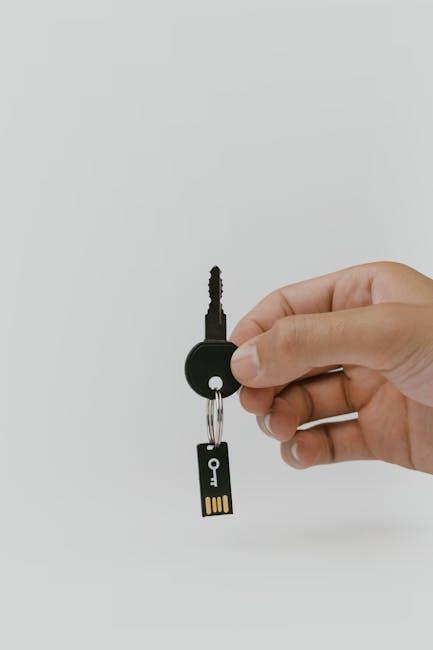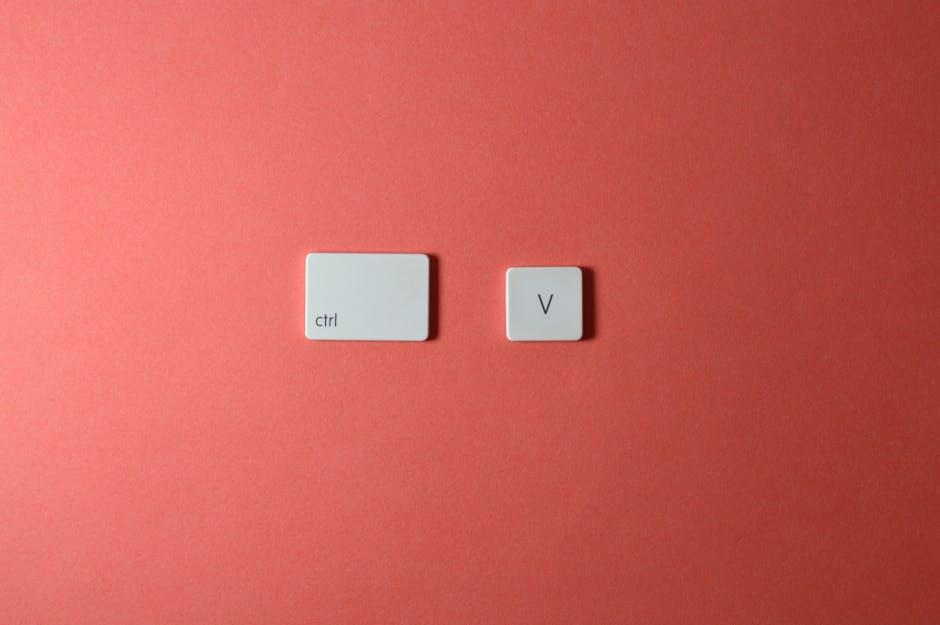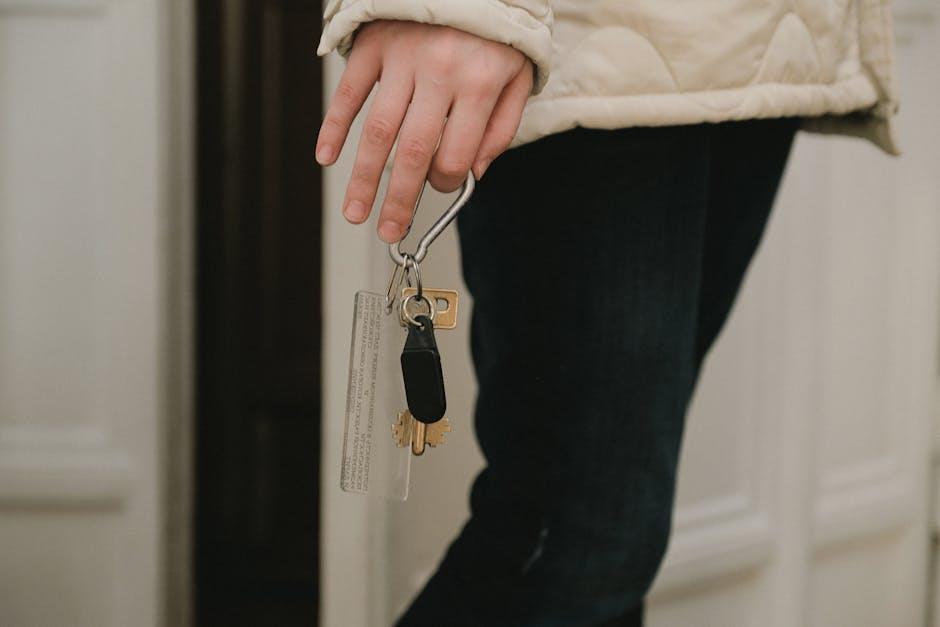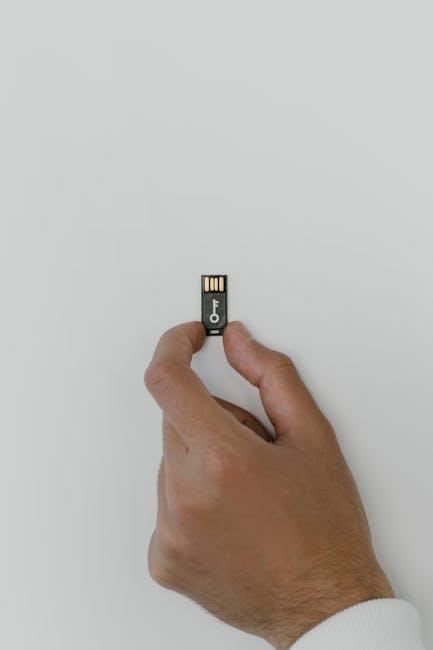Imagine the quiet confidence of locking your door at night, knowing only you hold the key to your sanctuary. But what if that certainty is shaken by a nagging suspicion-that someone else might have a copy of your key? The thought alone can unsettle even the calmest mind. Whether it’s a concern sparked by a lost key, a past roommate, a trusted service provider, or an uneasy feeling you can’t quite explain, knowing what steps to take next is crucial. This article explores practical and thoughtful strategies to regain control over your space and peace of mind when you suspect someone else might have unauthorized access to your home.
Table of Contents
- Recognizing the Signs Someone May Have Duplicated Your Key
- Assessing the Risks and Potential Consequences
- Immediate Steps to Secure Your Home and Belongings
- Consulting a Locksmith for Rekeying and Key Control
- Communicating with Neighbors and Authorities for Added Security
- Q&A
- Wrapping Up

Recognizing the Signs Someone May Have Duplicated Your Key
If you start noticing unusual activity around your home or office, it could be a subtle signal that someone has duplicated your key. This might include finding your locks tampered with, experiencing frequent lost keys, or observing strangers loitering near your entrance. Sometimes, the signs are less obvious-items slightly moved or minor disturbances in your daily routine may hint that unauthorized access is occurring. Pay close attention to any locked doors that no longer feel as secure or seem to turn more smoothly than before, as worn keyways can indicate repeated use by a duplicate key.
Being alert to behavioral changes can also help you catch the warning signs early. Someone with a copy might test their key quietly, leading to strange access patterns such as doors being unlocked at odd times or small valuables going missing. Here are a few practical signals to watch for:
- Unexpected lock wear or scratches around your keyhole
- Unexplained maintenance issues, like a jammed lock or misaligned door
- Access without your knowledge during times you are certain no one else should be around
- Key missing or lost repeatedly, possibly indicating surreptitious copying

Assessing the Risks and Potential Consequences
When you suspect someone may have a copy of your key, it’s important to understand the full scope of the potential risks involved. Unauthorized access not only threatens your property but can compromise your safety and privacy as well. Consider the different ways an intruder could exploit the access, such as:
- Stealing valuables without breaking in.
- Gaining entry at times when you’re away or vulnerable.
- Using your space for unauthorized activities.
Beyond immediate loss or damage, the emotional toll and anxiety caused by these risks can disrupt your peace of mind. This underscores the importance of acting swiftly to limit potential harm.
| Potential Consequence | Possible Impact | Recommended Action |
|---|---|---|
| Property Theft | Loss of valuables, difficult to insure | Change locks, alert insurance |
| Privacy Breach | Personal information compromised | Secure sensitive areas, monitor entry points |
| Repeated Access | Unnoticed intrusion cycles | Install surveillance, maintain logs |

Immediate Steps to Secure Your Home and Belongings
First and foremost, change your locks as soon as you suspect unauthorized key copies. Opt for high-security locks or smart locks that offer enhanced protection and can be reprogrammed if needed. While waiting for the locksmith, ensure all entry points such as doors, windows, and garages are securely locked and consider using additional physical barriers such as security bars or door jammers. Don’t forget to inform family members or trusted roommates about the potential threat so they can heighten their vigilance.
Next, conduct a swift home inventory to identify valuables and important documents that require safeguarding. Store irreplaceable items and sensitive paperwork in a fireproof and tamper-proof safe, ideally in a hidden or hard-to-access location. If possible, add motion sensor alarms or surveillance cameras to monitor suspicious activity in and around your home. Below is a quick checklist to help you stay organized during this critical time:
- Replace or rekey locks immediately
- Secure all potential entry points with physical reinforcements
- Notify household members of the security concern
- Inventory valuable items and important documents
- Store valuables in a secure safe or off-site
- Install surveillance or alarm systems if possible

Consulting a Locksmith for Rekeying and Key Control
When you suspect that someone might have an unauthorized copy of your key, enlisting the expertise of a professional locksmith is a crucial step toward regaining control and security. Locksmiths can perform rekeying, a process that changes the internal pins of your existing locks so old keys no longer work. This approach is often more cost-effective and less invasive than replacing entire locks. Additionally, locksmiths provide key control solutions, ensuring that only authorized individuals have access, and can create master keys if necessary, offering both convenience and security.
To streamline your decision-making, consider the following services a locksmith can offer related to key security:
- Rekeying Techniques: Tailored to your lock type and security needs, often completed quickly on-site.
- Key Control Systems: Specialized keys that cannot be duplicated without authorization, preserving strict access management.
- Audit Trails: Some advanced systems allow tracking of key usage for enhanced accountability.
- Lock Upgrades: Assessing and recommending higher-security locks that complement your existing setup.
| Service | Benefit | Typical Timeframe |
|---|---|---|
| Rekeying | Locks work only with new keys | 1-2 hours |
| Key Control Systems | Restricted key duplication | Varies by system |
| Lock Upgrade | Enhanced security features | Same day to 1 day |

Communicating with Neighbors and Authorities for Added Security
When you suspect that someone might have duplicated your key without permission, reaching out to your neighbors can create a valuable network of vigilance. Neighbors can be your eyes and ears, helping to spot unusual activity or unfamiliar people around your home. Consider setting up a neighborhood communication channel, such as a private social media group or a messaging app, where everyone can share observations securely and promptly. This collective effort not only deters potential intruders but also fosters a stronger sense of community trust and safety.
In addition to activating your local community, it’s crucial to notify local authorities about your concerns. Police departments often provide guidance on preventive steps and may increase patrols in your area if warranted. When contacting them, be prepared with details about your situation, including any suspicious behavior you’ve noticed. Here are some key points to share with authorities:
- Description of suspicious individuals or vehicles
- Times and dates of unusual activity
- Information about your home’s security measures
- Any evidence or signs of attempted access
Q&A
Q&A: What to Do If You Suspect Someone Has a Copy of Your Key
Q1: How can I tell if someone might have a copy of my key?
A1: Signs can be subtle. You might notice unexpected scratches on your lock, misplaced keys, or unexplained access to your property. If you’ve shared your key and feel uneasy about it, or if someone has had extended access to your keys, it’s wise to consider the possibility.
Q2: What should be my first step if I suspect a key copy exists?
A2: Don’t panic. Start by documenting your concerns-write down any incidents or odd occurrences. Then, limit access to the keys you control and alert trusted household members or roommates. From there, prioritizing security upgrades is a smart move.
Q3: Is changing the locks necessary, or are there other less drastic options?
A3: Changing locks is the most foolproof method, especially if the suspect has a key. Alternatively, you could rekey the existing locks, which is often cheaper and involves changing the internal mechanism so old keys won’t work. Smart locks with keyless entry are also an effective, modern solution.
Q4: Can I just ask the person I’m suspicious of to return the key?
A4: Direct communication can help if you feel safe and comfortable doing so. Politely requesting the key back or confirming its status sometimes resolves the issue. However, it’s important to trust your instincts-if you feel uneasy, focus on enhancing your security instead.
Q5: Should I involve law enforcement immediately?
A5: If you suspect malicious intent-like someone using the key to steal or trespass-contacting local law enforcement is advisable. For simple suspicion without evidence of wrongdoing, raising security and monitoring the situation first is often sufficient.
Q6: How can I prevent unauthorized key copies in the future?
A6: Use high-security locks with patented keys that cannot legally be duplicated without your permission. Avoid leaving keys unattended, and consider using key tags that don’t reveal your address. Additionally, transitioning to electronic access control systems can eliminate physical key risks altogether.
Q7: Are there professional services that can help me handle this situation?
A7: Absolutely. Locksmiths can assess your current locks, recommend rekeying or replacements, and install advanced locking systems. Security consultants can also provide comprehensive advice tailored to your home or business needs.
Q8: What about renters-should they notify their landlords?
A8: Yes. Tenants suspecting unauthorized key copies should alert their landlords promptly. Landlords may have policies and obligations regarding security and may arrange lock changes or upgrades to protect all parties.
Handling the possibility that someone has a copy of your key calls for calm, informed action. By assessing the situation carefully and boosting your security, you can protect your space effectively without unnecessary stress.
Wrapping Up
In the delicate dance of trust and security, the possibility that someone might possess a copy of your key can feel unsettling. Yet, knowledge is your first line of defense. By staying vigilant, taking proactive steps, and seeking professional guidance when needed, you can reclaim control over your personal space and peace of mind. Remember, keys are more than just metal-they’re the silent guardians of your sanctuary. Handling the situation thoughtfully ensures that your doors remain closed to uncertainty and open only to those you truly trust.




